Speak to an expert: 0333 0069769
Wondering which mattress firmness is best for you? Our guide will help you decide.
Besides obvious choices like size and support features, selecting the right firmness for your new mattress is a crucial decision. Trying to sleep on a mattress that just isn't quite right for you can lead to restless sleep, uncomfortable positions, and even joint, neck, back, and shoulder pain - so it's best to figure out what the best firmness is for you.
The perfect firmness for you is largely dependent on personal preference, but a number of factors should also be taken into account. You should look into factors like your age, body weight, and average sleeping position to find the best sleeping experience for you.
This bed firmness guide will explain the five different types of mattress firmness, to give you a better idea of the right firmness for you and your sleeping style. Armed with this knowledge, you’ll be able to choose the mattress firmness you need to get the best night's sleep possible.
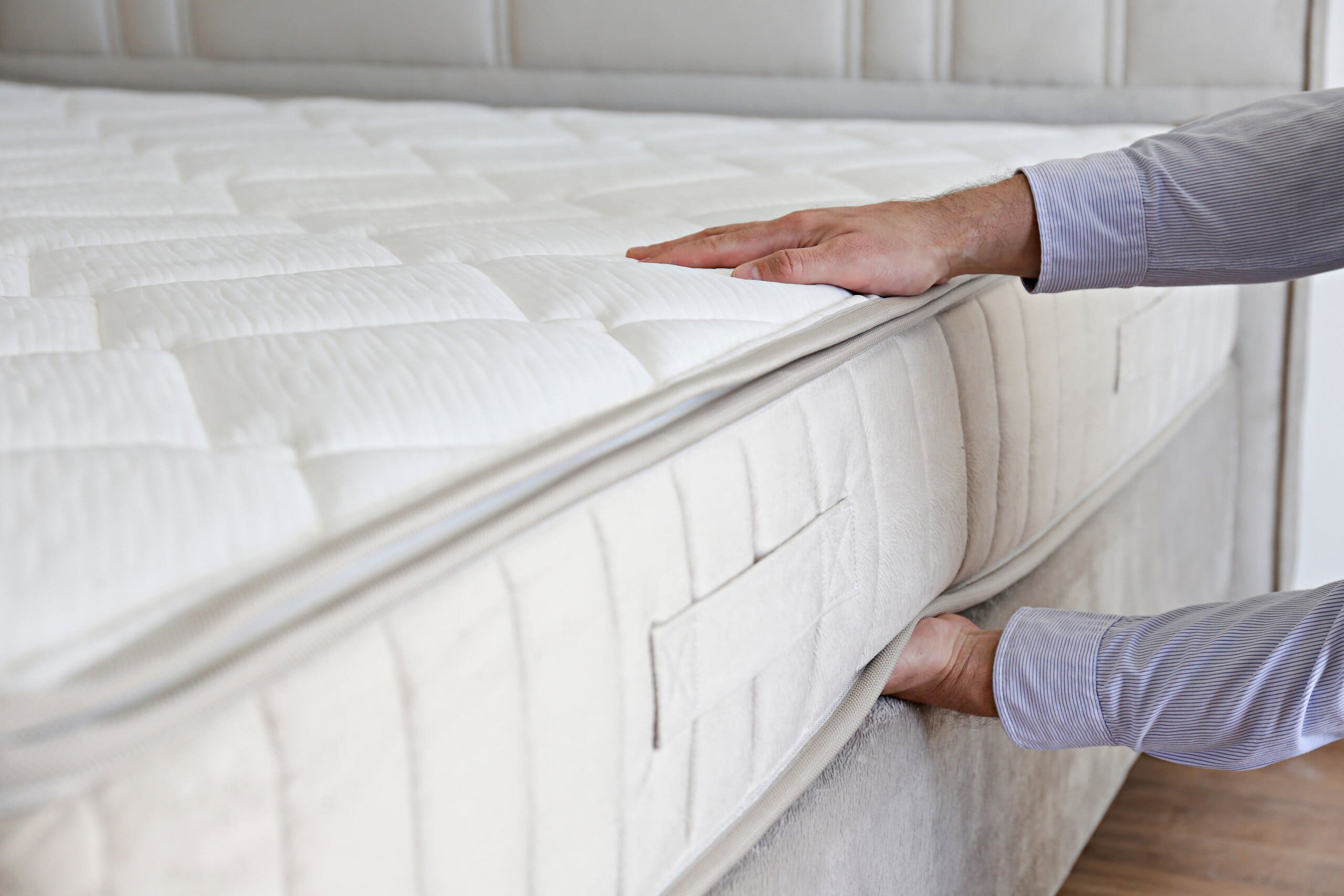
Mattress firmness is usually split into five different levels:
As you would expect, these categories correlate to the feel of the mattress - essentially how much resistance the mattress offers as you lie on it. The average sleeper will sit between a medium and a firm, but don't just rely on this generalisation. Mattresses are far from one-size-fits-all, so read on to find out which mattress firmness is best for you.
The most supportive mattress firmness will depend on your sleeping style. When you sleep in different positions, the pressure points of your body that need the most support with differ. Side sleepers, for example, need a softer mattress so their hips and shoulders can dip slightly into the mattress, whereas front sleepers need a firmer mattress to keep their back supported and prevent it from arching.
A soft mattress is the least firm option available, giving a cushioned feel that compresses under pressure. Soft mattresses don’t typically offer the level of support that most sleepers desire - this comes in more towards the medium level - but they can be a great option for those with specific requirements, or those of a lighter build.
Soft mattresses offer a lot of sinkage, resulting in the feeling of being ‘in’ the bed rather than ‘on’ it. This is perfect if you love a ‘sink in’ feeling as you get into bed. Soft mattresses often include low density memory foam, or soft fillings such as thick layers of wool or cotton.
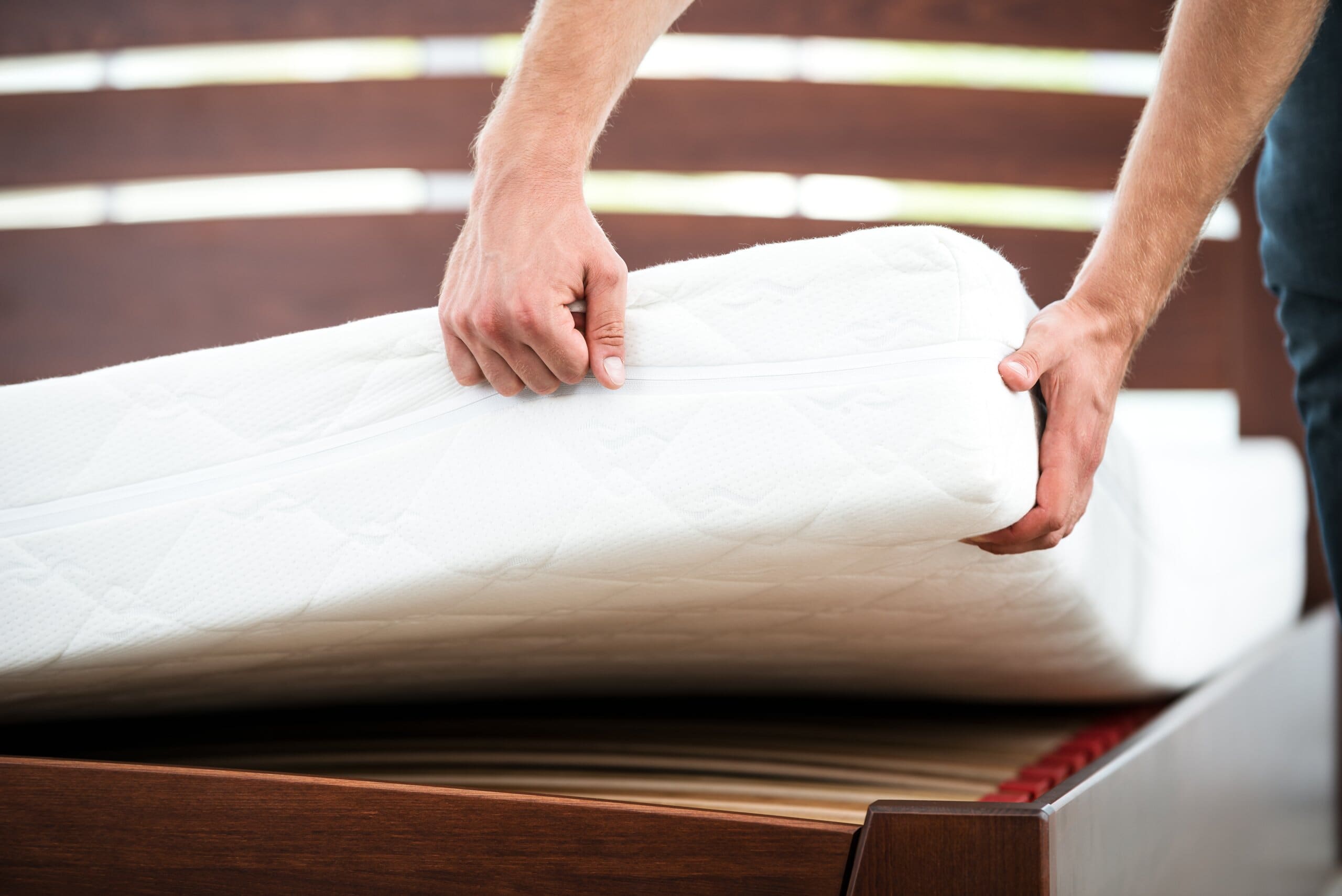
As for sleeping positions, a soft mattress typically best suits a side sleeper, since it counteracts any potential aches and joint damage. A soft mattress allows your hip and shoulder to sink into the mattress as you lay on your side, keeping your spine aligned and preventing any back or joint pain that could arise from poor sleep posture.
It’s a myth that soft mattresses are bad for your back, or will result in back pain. Modern mattresses feature innovative technology that ensures you can enjoy that sinking feeling of getting into bed, without having to sacrifice your back.
If you weigh under nine stone, a soft mattress will provide enough support to prevent aches and pains, but if you’re looking for orthopaedic levels of support, you should consider a firmer mattress.
Read more about soft mattresses for side sleepers in our guide to The Best Mattresses For Side Sleepers.
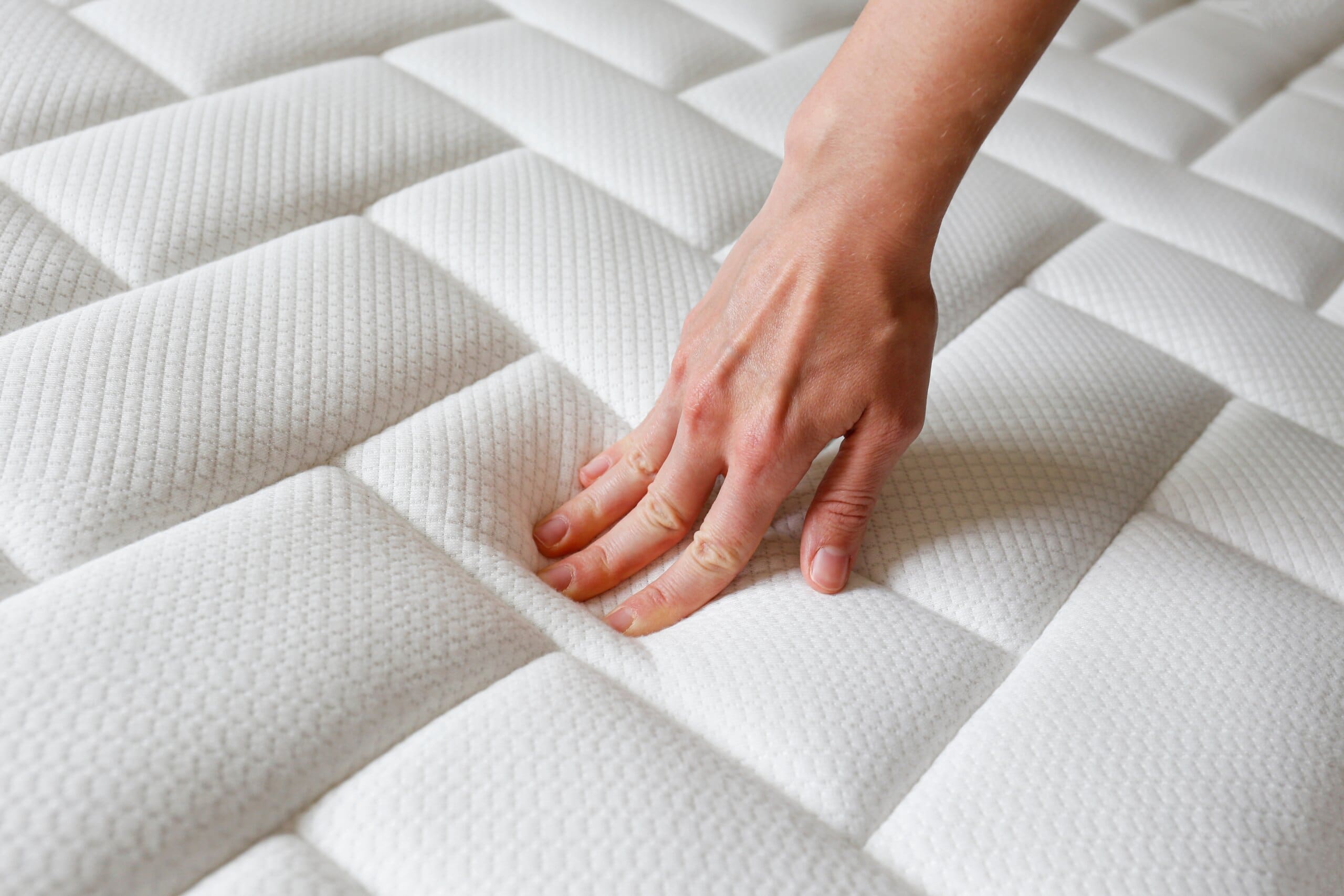
Medium mattresses, as you might expect, hit the sweet spot between soft and firm, and are a great ‘best of both worlds’ choice. They combine the soft cushioning of softer styles with the density of a firmer mattress for more support.
The versatility of a medium mattress means that there are plenty of styles to pick from, depending on what you prefer; memory foam mattresses are designed to mould to all body shapes for those who favour a softer feel, while pocket sprung mattresses help prevent you from sinking into the mattress.
Side sleepers can benefit from a medium mattress since they're still flexible enough to even out the spine and reduce pressure on your back. You can choose a memory foam style or add a mattress topper to cushion it even further.
Back sleepers can also benefit from a medium mattress, since the mix of cushioned softness and density for support helps to avoid any potential aches or pains without sacrificing comfort.
Front sleepers, however, would do better on a firmer mattress, in order to fully support their body in this position.
Medium firm mattresses still fall within that middle zone, offering both high levels of comfort and support, but edge closer towards firm. This makes them great for most people since they cater to most sleeping positions, ages, and body types.
They combine the luxurious cushioning of soft mattresses and the more rigid structure of firm ones, with less sinkage than a standard medium, so you feel like you’re ‘on’ your bed rather than ‘in’ it.
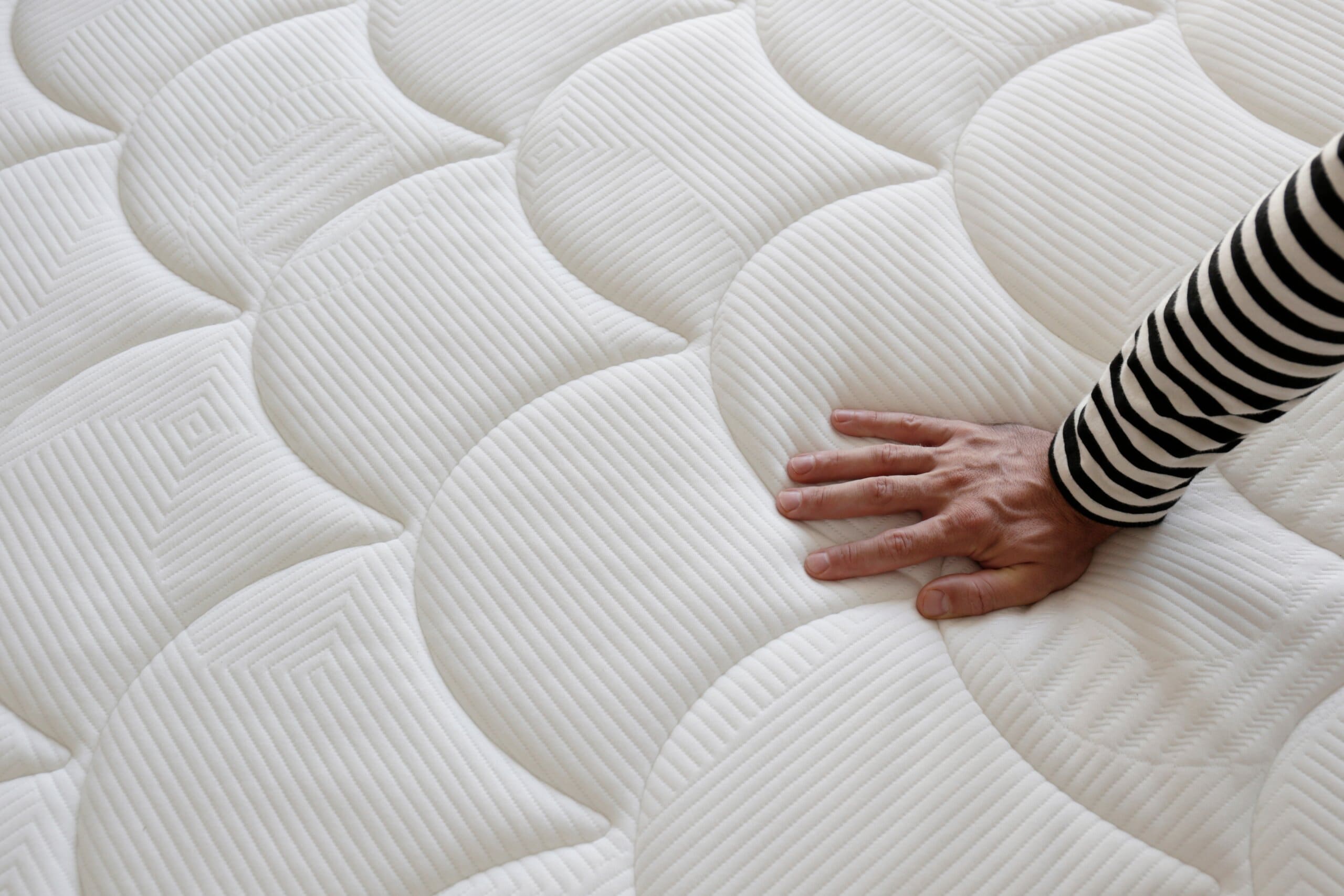
Front, back, and side sleepers can all achieve a healthy and restful sleep on a medium-firm mattress, although side sleepers may want to stay in the soft or medium region to ensure enough movement to allow their hips and shoulders to dip into the mattress, and align their spine.
Front sleepers will definitely benefit from a medium firm mattress, as it offers enough cushioning to cradle your stomach and chest, while firm enough to not arch your back uncomfortably. If you tend to sleep on your front, read our guide to The Best Mattresses For Front Sleepers.
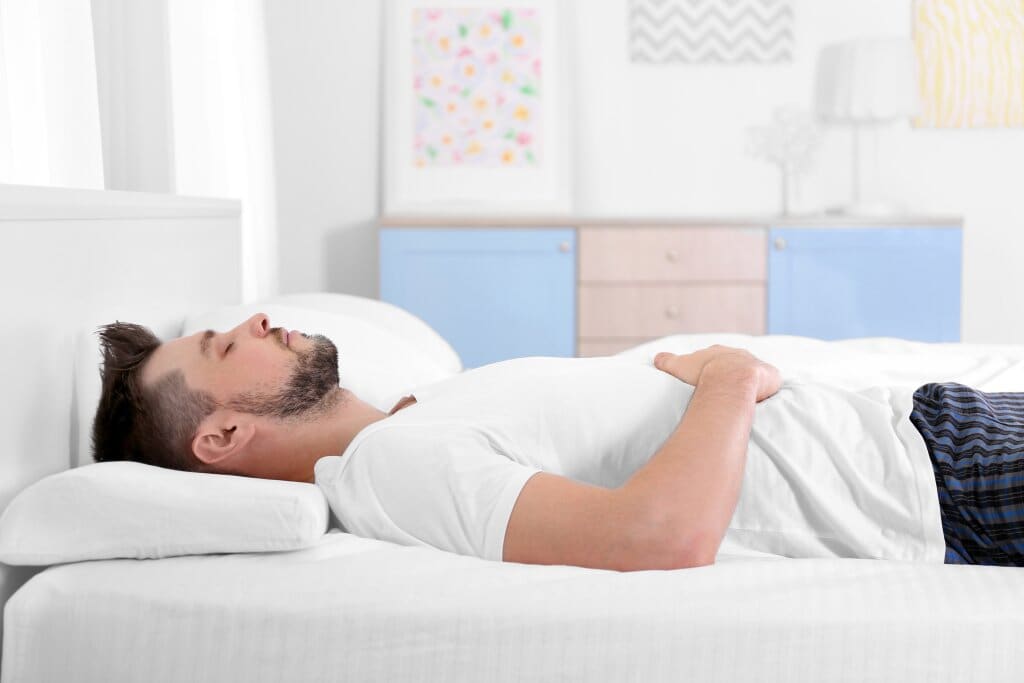
Offering little sinkage and more resistance to your body, a firm mattress don't 'give' as much as softer mattresses, so are better suited to back and front sleepers, who need a more rigid structure. Firm mattresses are ideal for those who prefer to sleep 'on' their bed rather than 'in' it.
They will also support your weight without causing pain to pressure points like your heels, rib cage, and shoulders. A firm mattress is also a good choice for teenagers to ensure that they receive sufficient support as they grow.
Firm mattresses are also known to provide orthopaedic levels of support to your back, so are perfect if you’re looking to get extra spinal alignment and posture control. If you often suffer with a bad back, but don’t necessarily need specialist support, then a firm mattress with orthopaedic properties is recommended.
Another reason firm mattresses are great for people who suffer from back or spinal pain, is because they offer more resistance, preventing any curvature of the spine that could exacerbate pre existing back problems. They are the ideal mattress for back sleepers, too, as your shoulders won’t sink into the mattress, curving your spine. For more information on sleeping on your back, you can read our guide to The Best Mattresses For Back Sleepers.
Firm mattresses are also best for people who spend long periods of the day hunched over or sitting down, as the stability helps to reduce muscular aches and pains. This is because a firm mattress allows your bones to absorb most of the pressure, leaving your muscles free to relax. Firm mattresses are excellent for enhanced posture control.
Lots of people struggle to choose between a medium or firm mattress, as they worry firm will be too solid, and medium will be too soft. A medium mattress firmness is the most popular, but remember that whichever firmness you choose, you can always add a mattress topper to make it softer or firmer.
Extra firm mattresses are at the very top end of feasible firmness and are typically a specialist option that will work brilliantly for those who require its specifications. However, they may not work as well for other sleepers, especially without a mattress topper.
Mattresses that are extra firm are designed to provide the right support to especially heavier people, in order to evenly distribute body weight and offer enough lumbar support to prevent aches and pains. Softer mattresses are often too plush to adequately brace a larger built person, so for the longevity of your mattress and the health of your joints and muscles, an extra firm mattress can be the best option.
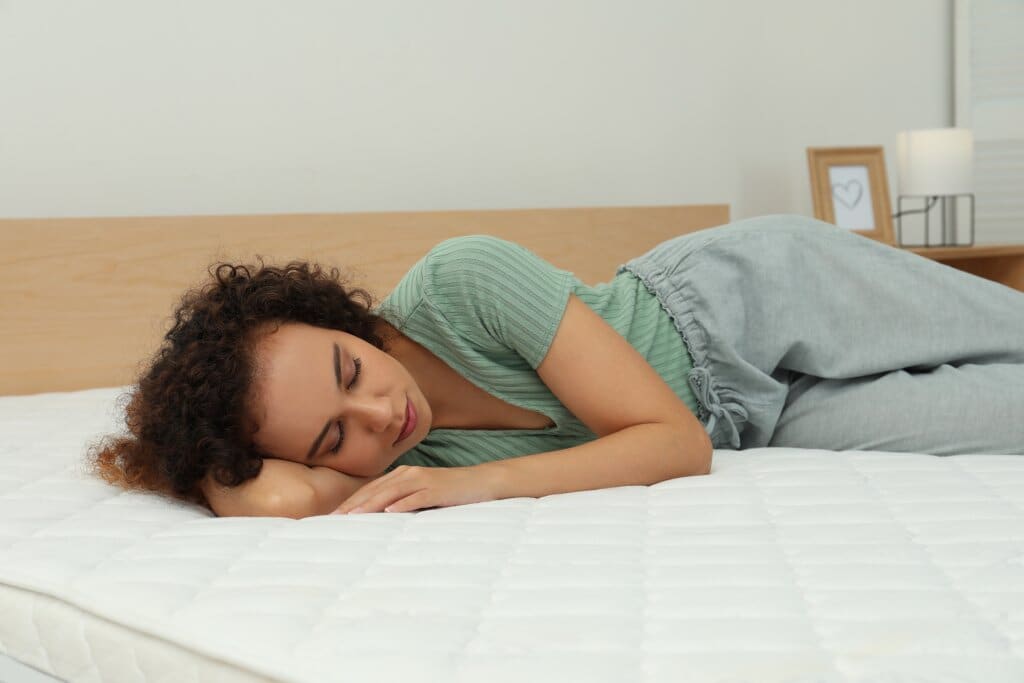
You may wish to consider extra firm mattresses that specifically list orthopaedic support as a feature, too. These mattresses help to achieve a healthy sleeping posture by reducing the strain on key pressure points in the body, and encourage proper spinal alignment.
If you do prefer a softer feel but require an extra firm mattress for any of these reasons, then a mattress topper could be the perfect solution. Usually composed of memory foam, mattress toppers use mattress padding and a protective layer to conform to the contours of your body and offer a luxurious layer of comfort, without having to sacrifice the density of the mattress underneath.
If you often sleep on your back, you might think an extra firm mattress is best for you. However, keep in mind that a mattress can be too firm and end up giving you back pain, so consider some cushioning with a regular firm mattress instead. Our Best Mattresses For Back Sleepers will give you more guidance.
Heavier people will benefit more from a firmer mattress, as their pressure points are likely to dip further into the mattress. To ensure proper alignment of the spine, if you're over 230lb we'd recommend a firm mattress to ensure you get optimal support from your mattress firmness. Read our guide to The Best Mattresses For Heavy People for more advice.
Lighter people will benefit from a softer mattress as they are less likely to sink in, so a firm mattress will not provide adequate support.
If you've decided on your perfect mattress firmness, you might still have some other things to consider. Our Ultimate UK Bed & Size Guide will help you choose the right size mattress for you, or if you need more general advice, our Mattress Buying Guide will be sure to help.